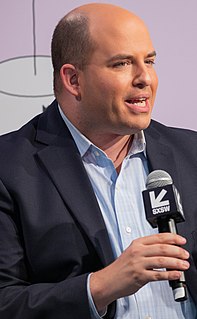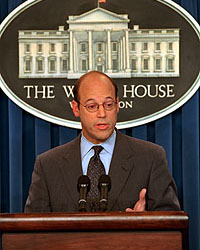A Quote by Alan Alda
The idea that the brain is not fully formed until you are almost 30 years old has already been introduced, and the Supreme Court already has based two rulings on it.
Related Quotes
The notion that the Supreme Court comes up with the ruling and that automatically subjects the two other branches to following it defies everything there is about the three equal branches of government. The Supreme Court is not the supreme branch. And for God's sake, it isn't the Supreme Being. It is the Supreme Court.
Today, it's not the same playing field as when I first became a lawyer in 1977, where the government had been restricted by our wonderful Supreme Court Justice Earl Warren's court rulings. Now it's all going the other way, the flow is against the defendant, against anything that could really help a client. But you still fight it, you do what you can do. It's all there is.
Class warfare always sounds good. Taking action against the rich and the powerful and making 'em pay for what they do, it always sounds good. But that's not the job of the Supreme Court. The Supreme Court standing on the side of the American people? The Supreme Court adjudicates the law. The Supreme Court determines the constitutionality of things and other things. The Supreme Court's gotten way out of focus, in my opinion.
In fact, Native American Rights Fund has a project called the Supreme Court Project. And quite frankly, it's focused on trying to keep cases out of the Supreme Court. This Supreme Court, Justice Roberts is actually, hard to believe, was probably worse than the Rehnquist Court. If you look at the few decisions that it's issued.
I am very proud of our Supreme Court - it is one of the best worldwide. Nevertheless, since the 1990s, we have seen a certain imbalance in the relationship between the judiciary, the parliament and the government. The Supreme Court behaved in an activist way. We have to debate the degree to which such Supreme Court activism is appropriate.
I think, again, on issues of energy, how are we going to fully utilize our energy resources in this country? What is the role of the federal government in higher education? What kind of justices would you appoint to the Supreme Court, not just because we have a vacancy now, but at least one or two potentially in the next four to eight years?
Today, no less than five Supreme Court justices are on record, either through their opinions or speeches (or both), that they will consult foreign law and foreign-court rulings for guidance in certain circumstances. Of course, policymakers are free to consult whatever they want, but not justices. They're limited to the Constitution and the law.



































